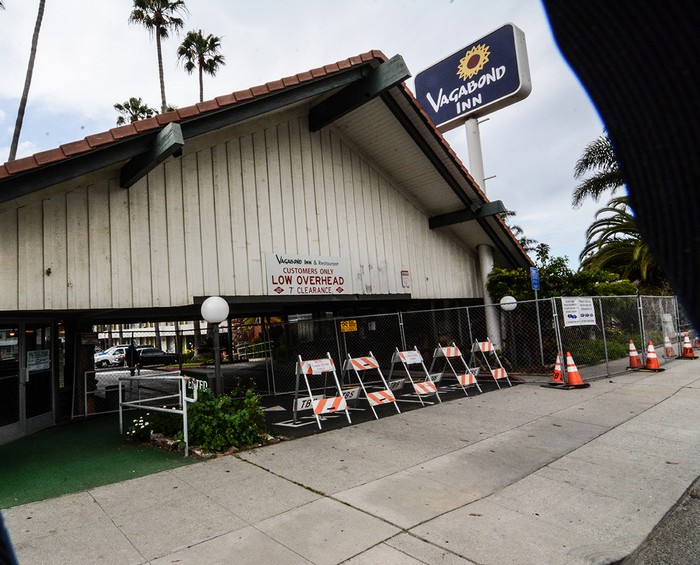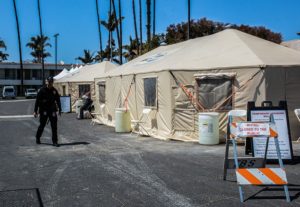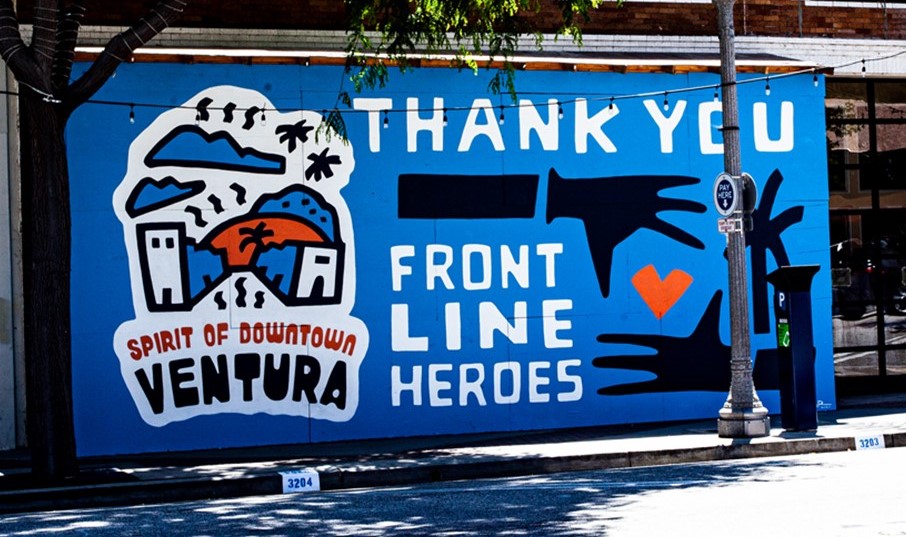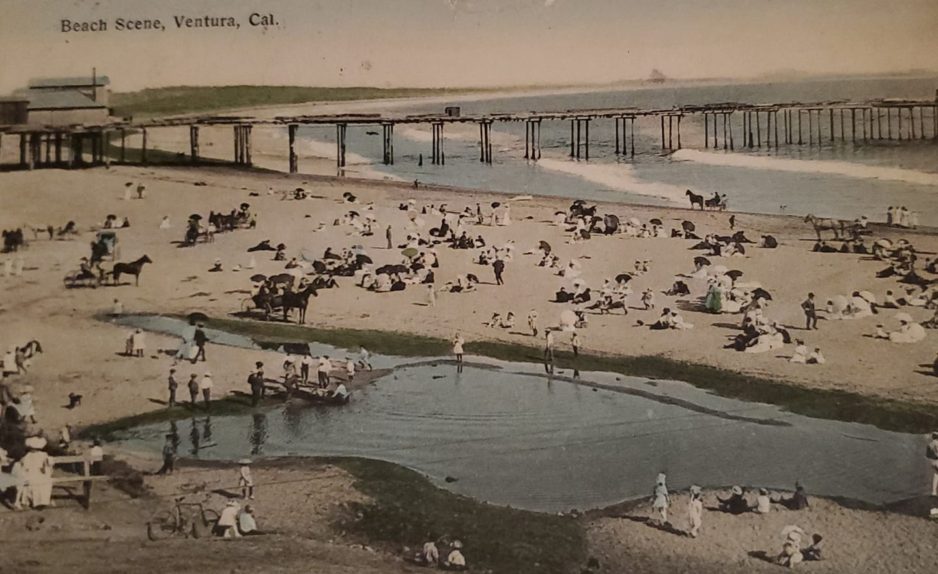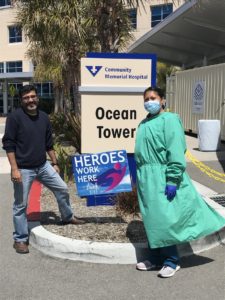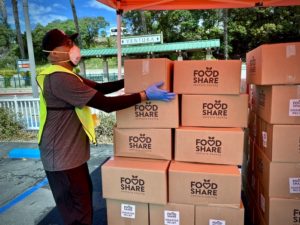A month ago, a group of Latino and immigrant rights activists in Ventura County identified the need to take action against the lack of support and recognition for the farmworker community during COVID-19.
Feeding the Frontline was initially created as a one time event to provide food for those who feed us, however as the community requests expanded in less than a month 9 feeding events were organized, more than 3000 farm workers families received food, supplies and personal protective equipment, and 80 tons of food were distributed to farmworkers in Oxnard, Santa Paula, Fillmore, and Piru.
In efforts to expand and continue supporting food assistance to the region’s farm working families who continue to provide California residents with safe and healthy food options throughout the COVID-19, Feeding the Frontline launches a fundraising campaign “Feeding the Frontline: Feeding our Farmworkers,” through a GoFundMe campaign to provide more support in the fields. The all-volunteer group is seeking community support to raise $10,000, which will help cover the cost of delivering food pantry boxes, fresh fruit and other essential products alongside bilingual Covid-19 and 2020 US Census information to these “frontline” families.
Although farmworkers are more essential than ever to the community’s well-being, farmworkers contributions continue to go largely unrecognized. Many California communities, including Ventura County’s economy and residents rely heavily on the work of farmworkers. In fact, farming and farm-dependent businesses provide an estimated 43,000 jobs in the County, generating $2.2 billion in revenue and $76 million in indirect business taxes annually. One in 10 county residents rely directly or indirectly on income earned from farming-related work.
The group’s efforts strike a personal chord for many volunteers whose families also work in Ventura County’s agricultural fields. “Keeping our families healthy is more important than ever before,” said Richard Castaniero, a community volunteer and local educator.
Feeding the Frontline: Feeding Our Farmworkers will be distributing fresh food boxes, fruit, and COVID-19 resource information this Saturday, May 16, 2020, 4pm-6pm at Rio Plaza School, 600 Simon Way, Oxnard.
To donate to Feeding the Frontline’s efforts, visit https://www.gofundme.com/f/feeding-the-frontline-feeding-our-farmworkers.
